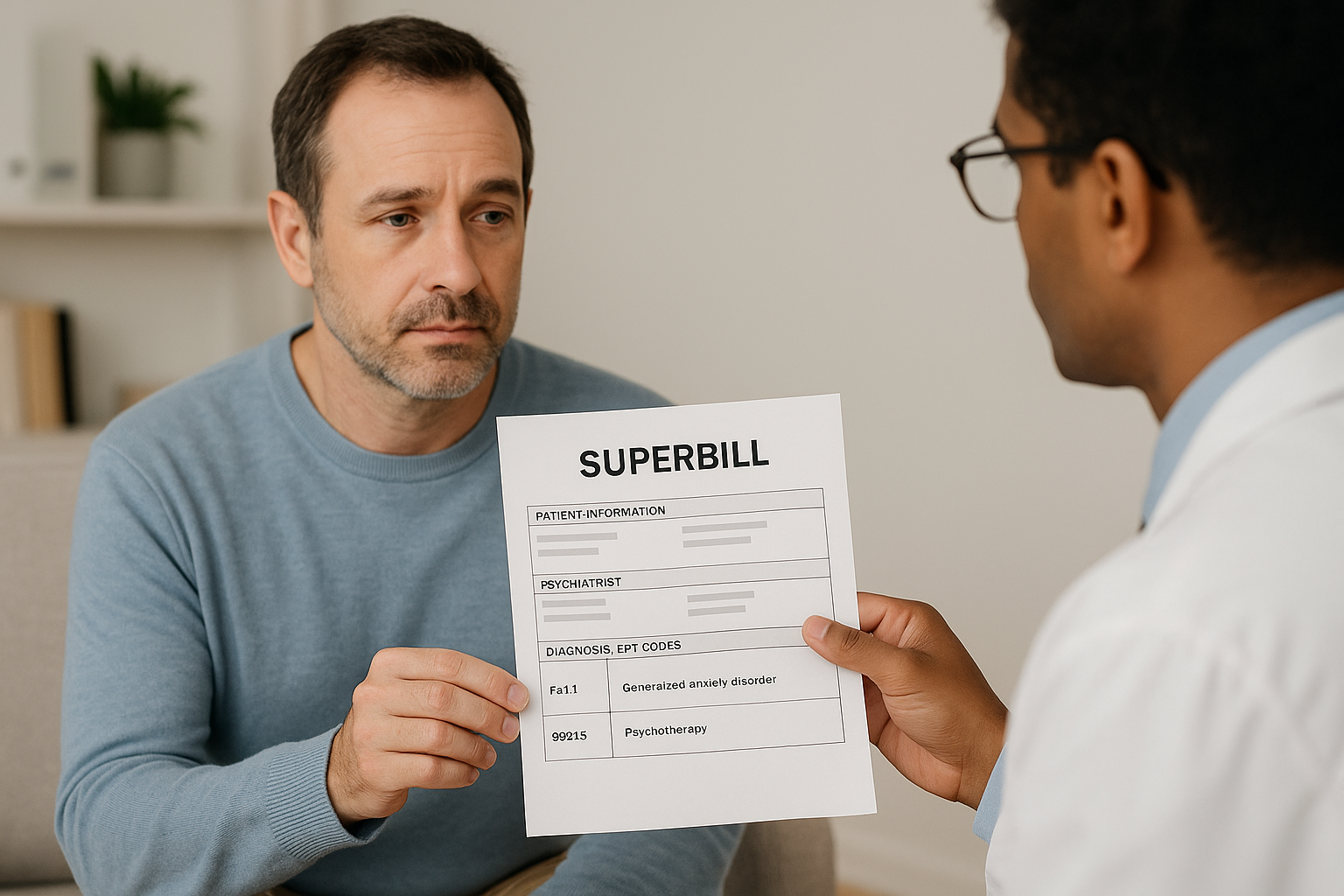What to Expect at Your First Psychiatric Appointment (and How to Make It Count)
Your first psychiatry visit isn’t about having it all figured out — it’s about showing up, being honest, and starting the journey toward feeling better.


Your first psychiatry appointment is a big step—and if you’re anything like most people I meet here in Monmouth County, it probably comes after weeks (or months) of searching, waiting, debating, and second-guessing.
So when the day finally arrives, it makes total sense to feel a swirl of emotions: hope, uncertainty, maybe even some nerves. You might be wondering: What should I bring? What’s the visit going to feel like? How do I make the most of it?
Here’s the good news: You don’t have to do this perfectly. But a little preparation ahead of time can go a long way in helping you feel grounded and confident walking into the room.
A Few Logistics Before You Arrive
Let’s start simple. First visits typically last about 60 minutes—sometimes a little longer if it’s a comprehensive intake. That doesn’t include the time it takes to check in, fill out paperwork, or park your car (shoutout to the tight parking spots in some Monmouth offices!).
I always suggest arriving at least 15 minutes early so you’re not rushed. Giving yourself that breathing room can really shift the tone of the whole visit.
Here’s a quick checklist of what to bring with you:
- Your insurance card
- A form of payment (even if you’re using insurance)
- Any recent medical records, hospital discharges, or lab work
- A list of your current medications—including over-the-counter items, supplements, and herbs
It may not seem like much, but having this ready saves time, reduces delays with billing or prescriptions, and helps your psychiatrist get the full picture from the very start.
Reflect a Bit Before You Walk In
Whether it’s your first appointment ever or you're switching to a new psychiatrist, those early visits can feel overwhelming. Many people worry they’ll forget to mention something important—or say too much all at once.
One thing I always recommend: Jot down a few notes the night before.
Ask yourself:
- What made me reach out for help now?
- What symptoms or patterns have I been noticing lately?
- What am I hoping will change?
You don’t need to journal for hours. Even a few bullet points on your phone can help. This simple exercise gives your brain some breathing room, and often, people realize something important while writing that they might not have thought to say out loud.
It’s not about having the “right” words. It’s about coming in connected to your own story—even if that story feels messy.
What Will We Talk About?
At your appointment, your psychiatrist is focused on two things: understanding what you’re going through, and figuring out how best to help. That requires a conversation that’s curious, thoughtful, and sometimes deep.
Here are a few areas we usually cover:
1. Current symptoms
What are you feeling lately? When did things start? How’s your sleep, appetite, energy, motivation, focus, mood? We’ll explore how your mental health is affecting your relationships, work, or school—and what you’ve tried so far.
2. Medication history
Whether it’s a past prescription, an old vitamin routine, or something you bought at Whole Foods, it’s all relevant. Some supplements can interact with psychiatric meds, so it’s helpful for your provider to have the full picture.
3. Substance use
This part can feel a little vulnerable—and I get that. But we’re not here to judge. We just want to make sure that anything we recommend is safe and aligned with your goals.
4. Family history
If you know whether a parent or sibling has struggled with depression, anxiety, bipolar disorder, ADHD, etc., share it. This helps us spot patterns and (in some cases) anticipate what treatments may or may not work best.
5. What you want
Some people come in hoping to avoid medication. Others are looking to start therapy, get a diagnosis, or build better coping tools. Whatever your goals are—speak them out loud. A good psychiatrist will work with you, not just on you.
Not Sure What to Say? That’s Totally Fine.
Let me say this clearly: you don’t need to have your story all figured out. You don’t need to know what diagnosis you have, or which medication you want, or where to even begin.
Some patients come in with organized notes. Others cry within the first five minutes. Both are welcome.
You’re allowed to be messy. You’re allowed to ask questions. You’re allowed to take your time.
A good first session is about building a safe space—where you can be honest, curious, and human. Your psychiatrist will help guide the conversation. If you forget something, don’t worry—there will be time in future sessions.
And no, you don’t have to commit to medication that day. It’s a conversation, not a contract.
Final Thoughts
Starting mental health care takes courage. You’re choosing to show up for yourself—and that’s something to feel proud of. Whether you're dealing with anxiety, depression, burnout, relationship struggles, or something you can’t quite name yet, this visit is a step toward clarity.
If you’re a teen or young adult navigating this process, or a parent helping your child take this step, the same basics apply: preparation helps, openness matters, and you are not alone.
More Articles

How Does Reimbursement Actually Work for Therapy / Psychiatry with Blue Cross Blue Shield in New Jersey?


